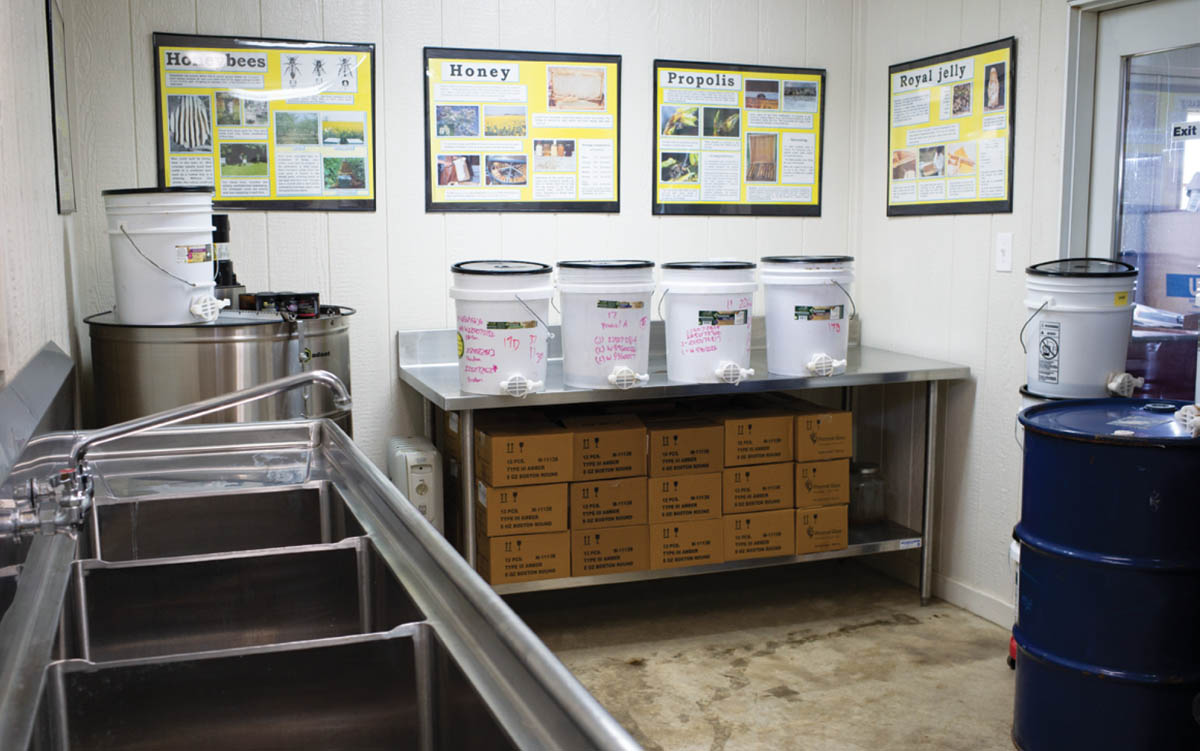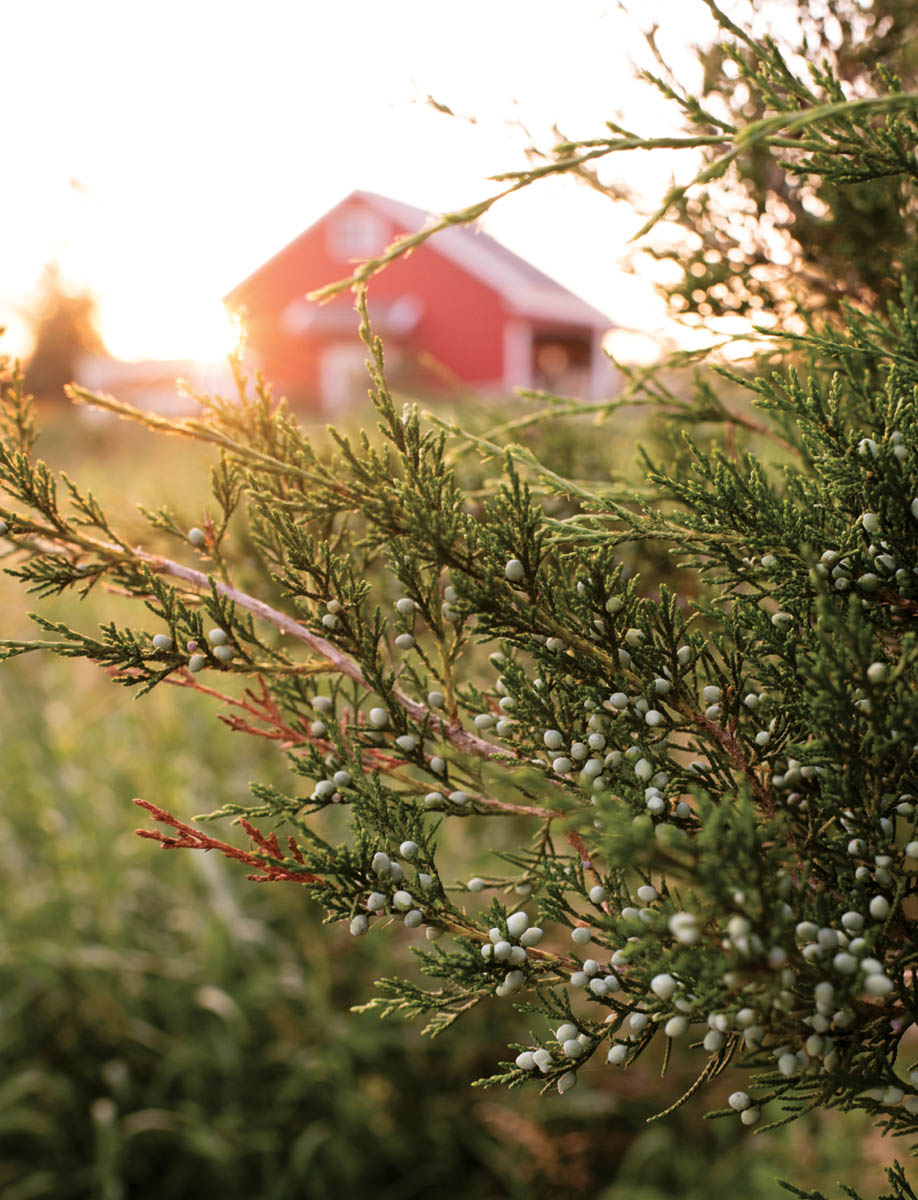

When we first started making herbal honeys, it was new not only to us but also to our local regulatory agencies. This resulted in a difficult learning experience on both sides that ultimately blossomed into a strong working relationship with our state and local regulatory agencies. Much of what we do on the farm focuses on teaching people how to make honey-and-herb remedies so that they can be more self-sufficient. For those who want to sell honey-based remedies, we can offer some practical advice on how to get started.
If you are interested in this business, you need to contact your local and state authorities. Regulations vary from state to state and even by local jurisdiction. When you go beyond community medicine — making remedies for family and friends who trust you — I believe in good regulations without overreach. If you’re producing a product that members of the general public will use for purposes of health and wellness, it is important that there be good standards that the consumer can safely rely on.
In Ohio, beekeepers are encouraged to register with the state Department of Agriculture. Yearly registration requires a nominal fee and includes an inspection of your hives. In other states, registration may be voluntary or be mandated, so check with your particular state.
Under Ohio’s state regulations, plain honey is named an “exempt” product, meaning it is not a product they need to oversee. For any beekeeper selling plain honey within Ohio, there are no inspections required beyond the bee yard. Beekeepers must follow basic labeling laws to include required information about the product so that consumers are informed. These items include the name and address of where it was produced, weight, and product name.
Ohio regulations specify which products can be produced in the home kitchen as a “cottage industry,” and then sold as such within the boundaries of the state. Fresh and dried herbs and teas are also considered cottage. When we started making herbal-infused honeys, honey was exempt and herbs were cottage, so we followed the cottage laws and proceeded to do business. However, just as we were gaining popularity, a national news story broke about how farmers’ markets are unregulated in this country. Honey was mentioned as one of the unregulated products. As a result, food safety inspectors in our area began inspecting all honey vendors and looking at their product offerings. Those that made whipped or creamed honey were required to obtain a commercial kitchen license. Because we were combining an exempt product (raw honey) with a cottage product (herbs) without a commercial kitchen license, our honey blends were also considered not to be properly labelled. Ultimately, we had to go through the process of getting our farm’s production kitchen officially inspected and licensed for use as a commercial operation.
Today, herbal-infused honeys have become popular enough in Ohio that the list of cottage industry products has been changed to include them. We’ve had discussions with our food safety inspector to explain all the different methods used for infusions and how infusion is different from adding flavoring. Knowing and understanding the processes enables regulators to ask informed questions and understand whether a product falls within cottage industry parameters. In our case, cottage industry products must follow specific label requirements that inform the consumer that it is made in a home kitchen. You should check to see what products are in the cottage industry category in your state and what the regulations require.
Even if you are producing an exempt or cottage industry honey or herb product, any sales across state lines (online or physically transported) require the products to be made in a commercial kitchen. We have friends who make wonderful jams and jellies, which fall under the cottage industry rules. Unfortunately, when a group of us did a holiday show in Kentucky, they couldn’t join us. Sales of any products — on social media, on your own website, or on a national retail platform — are considered interstate commerce and require a commercial kitchen license.
If you are required to have a commercial kitchen facility, there are two options: build your own or rent a local facility with an inspected kitchen space. The required elements of a commercial kitchen vary depending upon the type of products and the size of the operation, but in general you are required to have a hands-free employee wash sink, a triple-bay sink for washing, and washable sanitary surfaces for product making and storage. Inspection frequency varies, but our farm receives a visit from the inspector every 6 to 12 months. The inspector evaluates the cleanliness and sanitation of our facilities and processes, monitors our production process, checks facility records, and looks at product labels to ensure compliance with legal requirements.
Food safety inspection where we live follows a checklist based on the Good Manufacturing Practices (GMPs) established by the federal Food and Drug Administration (FDA). We are required to demonstrate our procedures and to maintain records that adequately trace our products and ingredients for safety. As part of a rural facility, we are also required to obtain a satisfactory water well test at least every 12 months from our local health department. Once you’ve waded into the commercial kitchen arena, you’ll definitely want to check into what’s required in your particular state. Do your research!
There may be additional licenses necessary depending on the honey or herb product that you are making. If you are creating an extract, such as an herbal tincture, syrup, or oxymel, you may need a license. In Ohio, for example, an additional license for syrups and extracts is required. Thinking about making kombucha? You may need to get a bottling license. If you create a wine using honey and herbs, you’ll have a whole list of additional requirements to consider. Remember that for each of these, the licenses and requirements vary from state to state, so check your state laws and give your state’s agricultural or food safety department a call. Be aware of what’s required based on the sweet remedy that you’re considering.

The commercial kitchen at Mockingbird Meadows
In addition to inspections by the Ohio Department of Agriculture, our food safety inspector also completes an FDA report every few years, which is sent to a regional office. This report includes questions relating to our business operation and the GMPs that are enforced to ensure that we are producing our honey and herb products in a clean and safe manner. As part of federal regulations, we are also required to register our farm operation in the FDA’s national database, which means there is the possibility of federal inspection at any time. After 12 years of running our operation, we had our first surprise inspection last year. You can expect more inspections as your business grows.
How you choose to categorize and label your product will make a difference in your regulations; food, dietary supplements, and medicines each have different requirements. If you’re making honey and herb products that are marketed and sold as a food item, you need to follow the GMPs for manufacturing food. However, if you decide that you want to make a product that will claim to heal a medical condition, the FDA will consider it a medical drug. Any product falling into the drug category is required to have laboratory testing with studies submitted to the FDA for approval before you can make any labeling or marketing claims. Saying, “Use this salve for skin cancer” or “This syrup will cure your cough” can land you in the drug category. Language matters! Drug category regulations are very complex and can be avoided if you simply want to make a honey-and-herb product.
Our products fall within the food category or the dietary supplement category. Any time you make claims on the product label that are not technically medical but do mention helping or assisting the body to achieve balance, there are specific requirements that must be met. Your best bet is to determine which track your honey-and-herb product best fits into and then research the proper FDA regulations.
Honey and herbs may seem sweet and simple, but if your business grows beyond a certain point it is subject to further federal regulations under the Food Safety Modernization Act and bioterrorism requirements added since 9/11. These requirements address nutritional information labeling, preventive controls measures, creating a food safety plan, product recall plans, and related monitoring.
Even after all these mind-numbing regulations have made you question your sanity, you still have a list of local considerations to address. After you’ve registered your business with the state and obtained a state business/vendor’s license, some municipalities or jurisdictions also require a local business license.
As a small farm, we are producing agricultural crops and products that are covered under the Ohio Revised Code. As a small agricultural business, we are required to have minimum acreage or show a minimum value of gross receipts from our agricultural activities on the farm. Our agricultural activities are also exempted from local zoning regulations.
If you live in a township, county, or municipality and are not designated as having agricultural zoning, local zoning regulations can greatly affect what you can or cannot do on your property when making honey-and-herb products. Every local zoning code is different and will require different types of approvals. (Fortunately, I married a city planner who had experience with zoning codes and could help navigate the language of regulations.) If you’re zoned as residential and are not able to do what you want on your property, you have some options: (1) Rezone to alter the classification of your property. (2) Obtain a conditional use approval that allows you to conduct your proposed activity based on certain conditions of your operation. (3) Obtain variances to your property’s zoning to allow certain aspects of making your proposed product. (4) Obtain a home occupation license to allow your product to be made on your residential property. Again, every jurisdiction is different, so do your research and square away your licenses and approvals.
Selling at local farmers’ markets normally requires liability insurance coverage for one million dollars. Larger events and trade shows will usually ask for the same; however, today more and more retail chains like grocery stores are requiring a balloon policy in excess of two million dollars of coverage. Small farm policies are becoming increasingly difficult to find, so make sure you have a good local insurance agent who will advocate for you and stay abreast of changes in the insurance industry.
At some point you might choose to become certified as organic, gluten-free, fair-trade, kosher, naturally raised, biodynamic, or any of the other certifications out there in foods and supplements. Each certifying agency has a different set of requirements, paperwork, and processes that you will need to follow. These certifications require that you understand and juggle a lot of details. Many companies hire someone full-time to manage all the paperwork, daily log maintenance, inspections, and recall processes, and so you may want to budget for an employee — or plan to find some way to add more time to the 24-hour day you are already putting in! We seem to spend as much time on paperwork as we do making our products. Carson used to pull all-nighters before farmers’ markets just to be able to get everything bottled, recorded, and ready. After years of practice and increased efficiency, he’s progressed to enjoying a good 4 to 6 hours of sleep the night before events.
While time consuming and stressful, this part of any operation is well worth the energy. After all, you wouldn’t want to put out a product that isn’t your very best, nor would you want a surprise visit from an inspector in which all your expensive and irreplaceable honey and herbs are destroyed or tossed into a landfill. So do your due diligence and reap the rewards.
Here’s to your sweet dreams!
